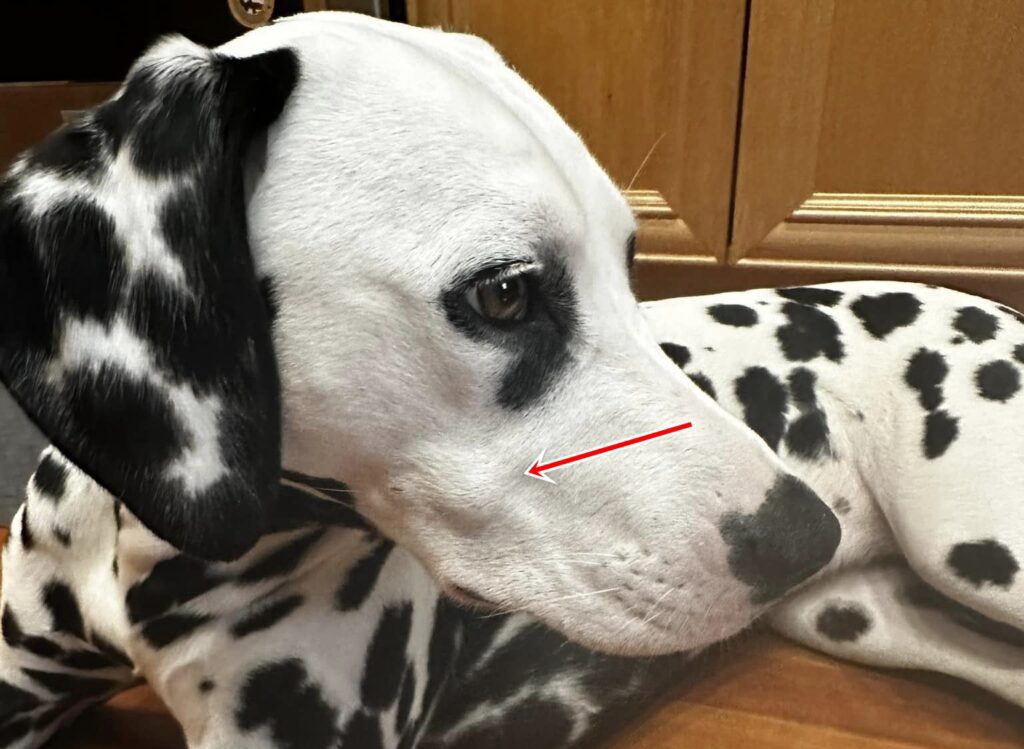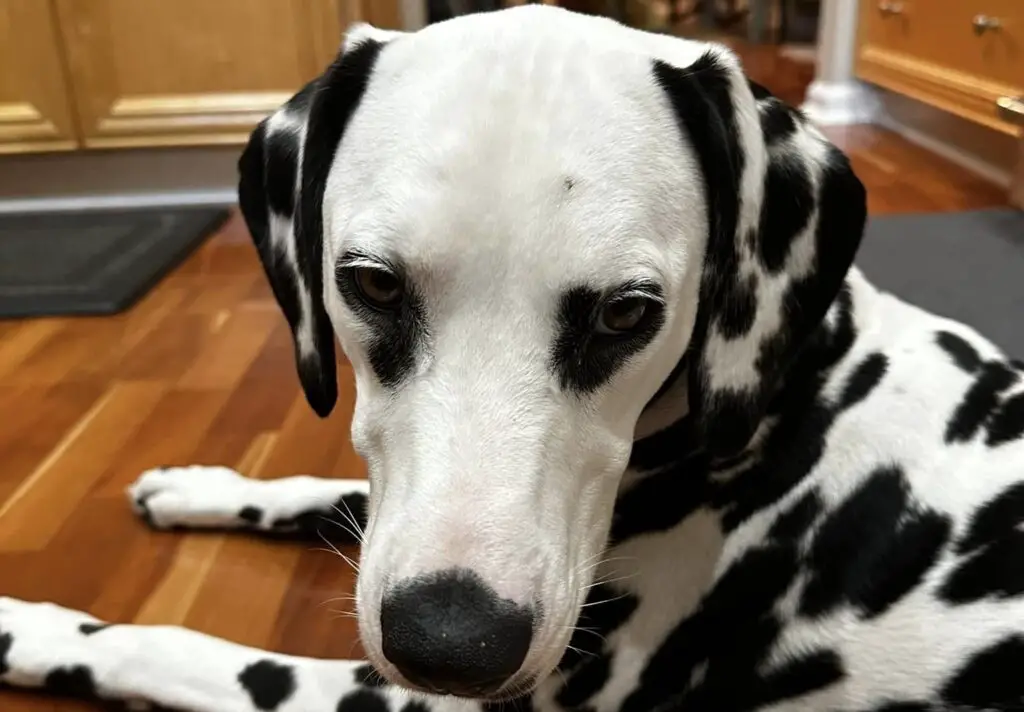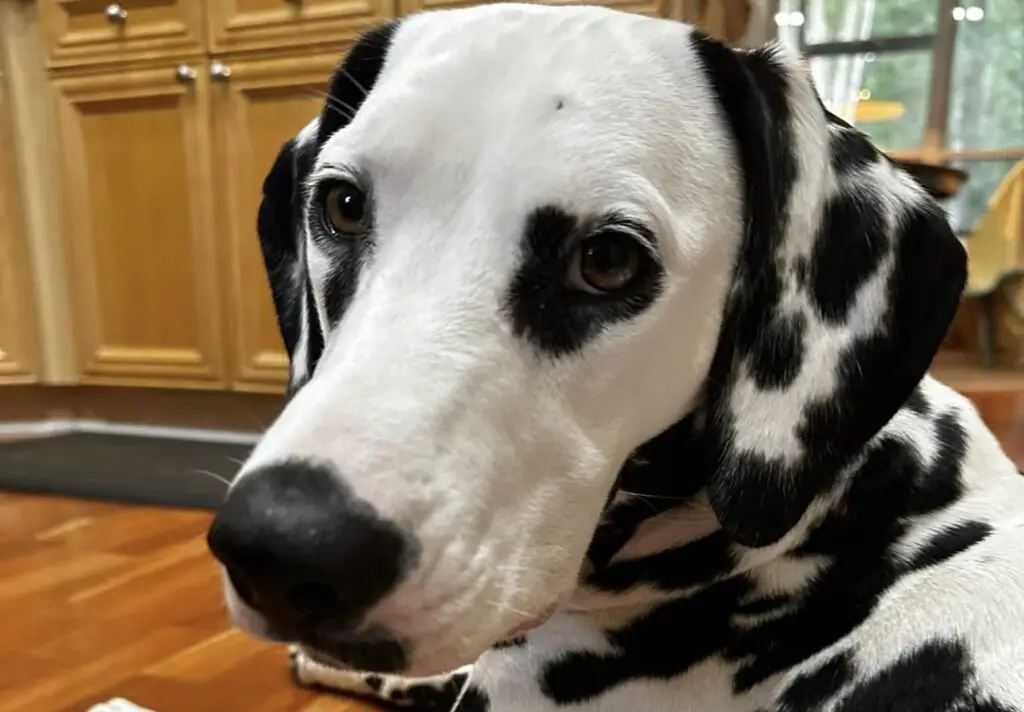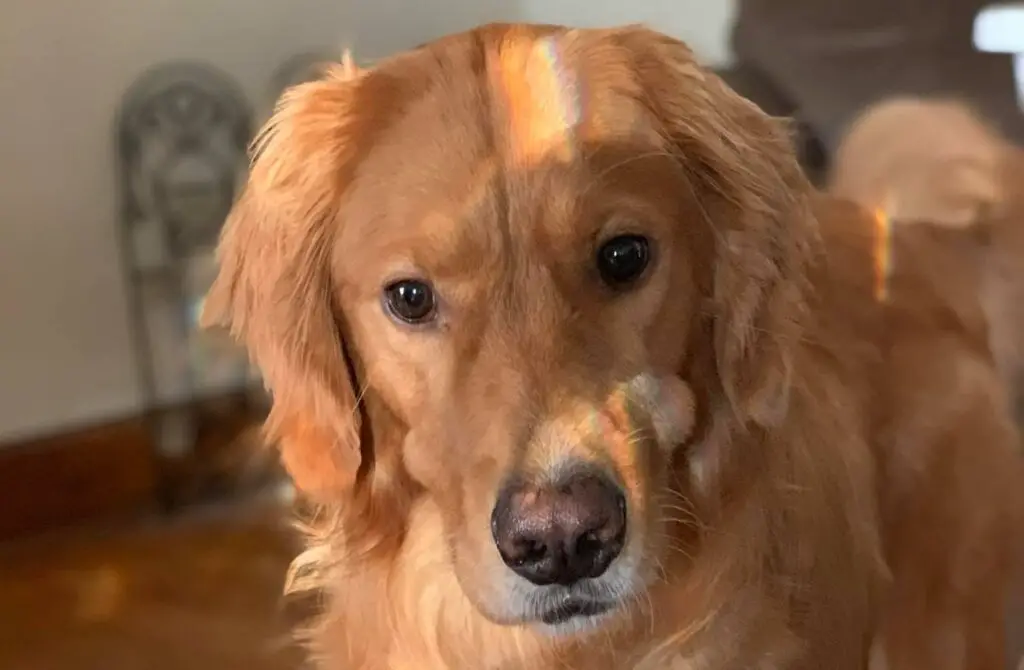Buccal lymph nodes in dogs are an important part of their immune system.
They help to filter out pathogens from the blood and lymphatic fluid, as well as produce antibodies to help fight off infection.
In this blog post, we will provide an overview of buccal lymph nodes in dogs, including their causes, symptoms, and treatment options.
Key Takeaway
- Buccal lymph nodes in dogs are a type of lymph node located near the jawline that play a role in the immune system, draining certain regions of the face and mouth, although they are not present in all dogs.
- The causes of enlarged buccal lymph nodes in dogs can include bacterial or fungal infections, tick-borne diseases, parasitic infections, autoimmune diseases, cancer, benign tumors, chronic inflammation, and dental diseases.
- Symptoms of enlarged buccal lymph nodes in dogs can include noticeable swelling or lumps near the jawline, changes in eating habits, excessive drooling, lethargy, fever, and behavioral changes such as increased irritability or anxiety.
What Are Buccal Lymph Nodes In Dogs

Buccal lymph nodes, also known as lymphonodus buccalis, are a type of lymph node found in dogs.
They are located rostral to the masseter muscle and lateral to the buccinator muscle in the region where the superior labial vein drains into the facial vein.
However, they are not present in all dogs; studies show that they occur in only about 9 percent of dogs. Clinically, these nodes are significant because they can enlarge due to various conditions.
See also: What Do Dog Lymph Nodes Feel Like?
Where Are Buccal Lymph Nodes Located In Dogs

Buccal lymph nodes in dogs are located rostral to the masseter muscle and lateral to the buccinator muscle.
This is in the region where the superior labial vein drains into the facial vein.
These nodes are positioned dorsal to the zygomatic muscle and are found in the subcutaneous tissue dorsal to the maxillary third premolar tooth.
These nodes are part of the canine immune system and drain the buccal, dorsal, nasal, lateral nasal, and superior labial regions.
See also: Can Dogs Lymph Nodes Swell From Allergies?
Causes of Enlarged Buccal Lymph Nodes In Dogs

- Bacterial infections: These are one of the most common causes of enlarged lymph nodes in dogs. The bacteria can cause an immune response, leading to swelling of the nodes.
- Tick-borne diseases: Diseases such as Lyme disease can cause inflammation and enlargement of the lymph nodes in dogs.
- Fungal infections: Certain types of fungi can lead to swollen lymph nodes.
- Parasitic infections: Parasites can also cause enlargement of the lymph nodes due to the body’s immune response.
- Autoimmune diseases: Conditions like lupus, immune-mediated hemolytic anemia (IMHA), and polyarthritis can also cause lymphadenopathy.
- Cancer: Cancerous tumors, especially lymphoma, can cause lymphadenopathy in dogs.
- Benign tumors: Non-cancerous growths can also cause the lymph nodes to swell.
- Chronic inflammation: Persistent inflammation due to an allergic reaction or a long-term infection can lead to swollen lymph nodes.
- Dental disease: Dental issues can often lead to swollen submandibular lymph nodes.
See also: How Big Are Dog Lymph Nodes?
Symptoms of Enlarged Buccal Lymph Nodes In Dogs

- Swelling or lumps: The most noticeable symptom of enlarged buccal lymph nodes in dogs is swelling or lumps in the area where these nodes are located, typically near the jawline.
- Pain or discomfort: Dogs with swollen lymph nodes may show signs of pain or discomfort, especially when the affected area is touched.
- Changes in eating habits: Due to discomfort or pain, dogs may show changes in their eating habits. They might eat less or have difficulty chewing and swallowing.
- Excessive drooling: Some dogs may drool more than usual if there’s swelling in the mouth area.
- Lethargy: Dogs may seem unusually tired or lethargic due to the body’s immune response to an infection or disease.
- Fever: If the enlargement of the lymph nodes is due to an infection, the dog may also have a fever.
- Behavioral changes: Dogs may exhibit behavioral changes such as being more irritable or anxious due to discomfort or pain.
See also: How To Check a Dog’s Lymph Nodes
Diagnosis of Enlarged Buccal Lymph Nodes In Dogs
Diagnosis of enlarged buccal lymph nodes in dogs includes:
Physical Examination
The first step in diagnosing enlarged buccal lymph nodes in dogs involves a thorough physical examination by a veterinarian. The vet will palpate the area to check for swelling or lumps in the buccal region, which could indicate an issue with the lymph nodes.
Medical History
The vet will also take into account the dog’s medical history. This will include information about any previous health issues, recent illnesses or infections, and any changes in behavior or eating habits that the owner may have noticed.
Laboratory Tests
Laboratory tests may be necessary to confirm the diagnosis. This could include blood tests to check for signs of infection or other health issues. A complete blood count (CBC) can reveal anemia, inflammation, or infection, which could be causing lymph node enlargement.
Imaging Studies
Imaging studies, such as X-rays or ultrasound, may be used to get a clearer picture of the lymph nodes and surrounding tissues. This can help determine the extent of the swelling and whether it’s isolated to the buccal lymph nodes or involves other lymph nodes as well.
Biopsy
In some cases, a biopsy may be necessary. This involves taking a small sample of tissue from the enlarged lymph node and analyzing it under a microscope. This can help determine whether the enlargement is due to an infection, inflammation, or cancerous growth.
See also: Can Dog Lymph Nodes Be Removed?
Treatment of Enlarged Buccal Lymph Nodes In Dogs
Treatment of enlarged buccal lymph nodes in dogs includes:
Antibiotics and Antifungals
If the enlargement of the buccal lymph nodes is due to a bacterial or fungal infection, antibiotics or antifungal medications may be prescribed by the veterinarian. These medications work to eliminate the underlying infection, thereby reducing the swelling in the lymph nodes.
Anti-Inflammatories and Steroids
In cases where the lymph node enlargement is due to inflammation, anti-inflammatory medications or steroids may be used. These drugs help to reduce inflammation and swelling, providing relief to the dog.
Surgery
In some cases, surgical intervention may be necessary. This could involve removing the swollen lymph node entirely or excising a tumor if one is present. Surgery is typically considered when other treatment options have not been effective or if the cause of the enlargement is cancerous.
Chemotherapy and Radiation Therapy
If the buccal lymph node enlargement is due to cancer, such as lymphoma, chemotherapy or radiation therapy may be recommended. These treatments aim to kill cancer cells and shrink tumors, which can lead to a reduction in lymph node size.
Regular Monitoring
In some instances, the veterinarian may advise regular monitoring of the enlarged lymph nodes without immediate treatment. This could be the case if the enlargement is mild, not causing discomfort to the dog, and not associated with a serious underlying condition.
Recovery from Enlarged Buccal Lymph Nodes In Dogs
Recovery from enlarged buccal lymph nodes in dogs largely depends on the underlying cause of the enlargement.
Post-Antibiotics or Antifungals Treatment
If the enlargement was due to a bacterial or fungal infection that has been treated with antibiotics or antifungals, your dog should recover fully once the infection is completely cleared. It’s important to finish the entire course of medication, even if your dog seems to be feeling better, to ensure the infection doesn’t return.
Post-Surgery Recovery
If surgery was performed to remove the enlarged lymph node or tumor, recovery may take a few weeks. Your dog will need plenty of rest and may require pain medication. The vet may also recommend a special diet during this time to support healing.
Post-Chemotherapy or Radiation Therapy
If the enlargement was due to cancer and your dog underwent chemotherapy or radiation therapy, recovery can be more complex. These treatments can have side effects, such as nausea, fatigue, and a weakened immune system. Your vet will likely provide you with specific care instructions to help manage these side effects and improve your dog’s quality of life.
Regular Monitoring
In cases where treatment was not immediately necessary and the vet recommended regular monitoring instead, recovery isn’t a factor. However, it’s important to keep an eye on your dog’s symptoms and report any changes to the vet.
FAQs
Q: What causes swollen lymph nodes in dogs?
A: Swollen lymph nodes in dogs can be caused by various factors, including infections, inflammation, autoimmune disorders, cancer (such as lymphoma), and other underlying health conditions. It is important to consult a veterinarian to determine the specific cause.
Q: How are swollen lymph nodes in dogs diagnosed?
A: Diagnosis of swollen lymph nodes in dogs typically involves a thorough physical examination by a veterinarian. The vet may also recommend further tests, such as blood tests, imaging (such as X-rays or ultrasound), fine-needle aspirate, or biopsy of the affected lymph nodes, to identify the underlying cause.
Q: Where are lymph nodes located in dogs?
A: Dogs have lymph nodes located throughout their bodies, including in the neck, under the jaw, in the armpits, in the groin area, and also in the buccal region of the face.
Q: What are the treatment options for swollen lymph nodes in dogs?
A: Treatment for swollen lymph nodes in dogs depends on the underlying cause. It may involve addressing the infection or inflammation, administering medications (such as antibiotics or anti-inflammatory drugs), pursuing chemotherapy for cancerous lymph nodes, or implementing other specific treatment approaches recommended by a veterinarian.
Q: Can swollen lymph nodes in dogs be a sign of lymphadenopathy?
A: Yes, swollen lymph nodes in dogs can be a symptom of lymphadenopathy. Lymphadenopathy refers to the abnormal enlargement of lymph nodes, which can occur due to various underlying causes.
Q: What are the common causes of swollen lymph nodes in dogs?
A: Common causes of swollen lymph nodes in dogs include infections (such as bacterial, viral, or fungal infections), inflammation, cancer (such as lymphoma), immune-mediated disorders, and other health conditions that stimulate the dog’s immune response.
Q: Can I feel the lymph nodes in my dog?
A: Yes, in some cases, you can feel the lymph nodes in your dog if they are enlarged or swollen. However, it is important to handle your dog with care and not apply excessive pressure, as it may cause discomfort or pain to your pet.
Q: When should I consult a veterinarian about my dog’s swollen lymph nodes?
A: It is recommended to consult a veterinarian if you notice any unusual swelling or enlargement of your dog’s lymph nodes, especially if they are persistent or accompanied by other concerning symptoms. A veterinary professional can evaluate your dog’s condition and recommend appropriate diagnostic tests and treatment options.
Q: Are swollen buccal lymph nodes in dogs always a cause for concern?
A: Swollen buccal lymph nodes in dogs can indicate various underlying health conditions, some of which may require medical attention and treatment. It is essential to consult a veterinarian for a proper diagnosis and to determine the appropriate course of action.
In Conclusion
In conclusion, buccal lymph nodes in dogs can be a cause for concern if they become swollen or irritated.
If your dog is showing signs of enlarged buccal lymph nodes, it is important to have them checked out by a veterinarian as soon as possible.





Leave a Reply